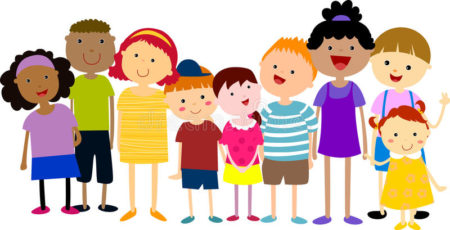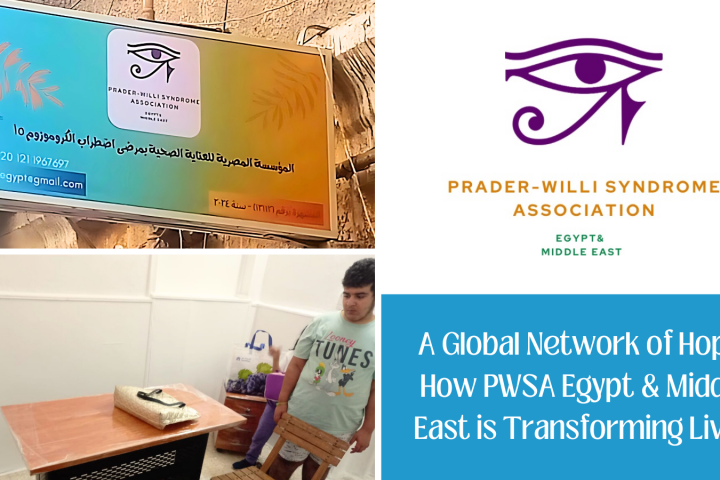Ask any homeschooling family and they will tell you that the number one question when someone finds out they home school is “but what about socialization?” I often tell people that if we took advantage of all the opportunities to socialize, we would never get any lessons done. Right now, with everyone across the country staying home more, and many schools switching to distance learning, families all over are learning that a brick and mortar school isn’t the only place for socialization. Let’s take a look at what socialization is and the opportunities students have outside of traditional schooling.
The dictionary defines socialization as “the activity of mixing socially with others” or “the process of learning to behave in a way that is acceptable to society.” There’s nothing about school in those definitions. While school is often where kids meet friends, actual school time has limited opportunities for “mixing socially with others.” Lunch and recess time have become more limited, and for some students with special needs can be a source of isolation and an opportunity for bullying. Yes, students learn skills like standing in line, waiting for help, raising hands to be called on, and other behaviors that help us function in society, but school is not the only place to acquire those skills.
People are often under the misconception that home schooled kids spend all their time at home isolated from other children. In fact, the opportunities to be with other children are abundant. In normal, non-pandemic times, there are numerous options for kids to interact with peers. Home schoolers are used to regular park day gatherings, game nights, field trips, club activities, dances, and hanging out with friends. Many home schoolers also attend classes at home school learning centers, or even community college in high school. All of these provide kids with opportunities to develop friendships and practice navigating social interactions. The inability to meet with our community has been the biggest and hardest change for traditional homeschooling families, as it has for most families.
Homeschooling families also tend to have their children accompany them in a wide variety of routine errands and appointments providing real life examples and opportunities to learn how to “behave in a way that is acceptable to society” from waiting in lines, to how to talk to store clerks, to learning how to appropriately interrupt to ask for help. Discussions can occur based on children’s questions of the transaction observed or the parent using it as a time for explanation. Children also often have more opportunities to engage with librarians, store clerks, museum workers, etc. because they can go during quieter times of the day. All of these provide real-life, practical life lessons about how to function in society.
A benefit of most home school socialization is that it is interest based instead of age based. In schools, students are grouped together based on age and for the most part interact only with the peers in their same grade; conversely, home schoolers focus on interest and ability. For our kids with Prader-Willi syndrome and other special needs, this often benefits them because the kids are used to interacting with a large range of ages. Even classes at learning centers are based on ability rather than any particular grade, so classes have more of a variety of ages than is found in schools. It is not uncommon in park day gatherings to see groups of kids from all ages playing games together; and generally speaking, homeschool groups are accepting of a wide range of abilities because they’re used to interacting with such a wide range of ages. As adults, our interactions are not based on age, therefore this way of socializing is more representative of life.
Speaking of adult life, what I focus on with my son are the skills that will matter long term. The number of years spent in school is small in comparison to one’s post-school life. Naturally, we want him to act appropriately with his peers, but we also concentrate on real-world scenarios and allowing him to indulge in his interests, which naturally help motivate him to engage and socialize.
Not unique to homeschooling families, but here are some other places that children are able to socialize: church, sports, Special Olympics, or clubs like 4H, Boy/Girl Scouts, etc. Because our kids often need extra help to learn good habits, many participate in social skills therapy, which typically involves a group setting. Kids who have Prader-Willi syndrome may also have respite workers or other caretakers with whom they can socialize.
Socialization is hard for everyone right now as we must limit our interactions and distance ourselves from friends and family. This means we need to find alternate ways for our kids to socialize. Just as we adults have done, your kids may benefit from virtual get-togethers; or perhaps you have a couple trusted families you feel comfortable allowing your kids to interact with. Don’t underestimate the benefit of real-life socialization or the skills that can be learned playing games as a family.
Whether you have decided to home school or are using your school’s distance learning model, hopefully you now have some ideas about the wide variety of opportunities that exist for your child to become socialized.
Contributed by Julie Casey





 Perry A. Zirkel has written more than 1,500 publications on various aspects of school law, with an emphasis on legal issues in special education. He writes a regular column for NAESP’s Principal magazine and NASP’s Communiqué newsletter, and he did so previously for Phi Delta Kappan and Teaching Exceptional Children.
Perry A. Zirkel has written more than 1,500 publications on various aspects of school law, with an emphasis on legal issues in special education. He writes a regular column for NAESP’s Principal magazine and NASP’s Communiqué newsletter, and he did so previously for Phi Delta Kappan and Teaching Exceptional Children. Jennifer Bolander has been serving as a Special Education Specialist for PWSA (USA) since October of 2015. She is a graduate of John Carroll University and lives in Ohio with her husband Brad and daughters Kate (17), and Sophia (13) who was born with PWS.
Jennifer Bolander has been serving as a Special Education Specialist for PWSA (USA) since October of 2015. She is a graduate of John Carroll University and lives in Ohio with her husband Brad and daughters Kate (17), and Sophia (13) who was born with PWS. Dr. Amy McTighe is the PWS Program Manager and Inpatient Teacher at the Center for Prader-Willi Syndrome at the Children’s Institute of Pittsburgh. She graduated from Duquesne University receiving her Bachelor’s and Master’s degree in Education with a focus on elementary education, special education, and language arts.
Dr. Amy McTighe is the PWS Program Manager and Inpatient Teacher at the Center for Prader-Willi Syndrome at the Children’s Institute of Pittsburgh. She graduated from Duquesne University receiving her Bachelor’s and Master’s degree in Education with a focus on elementary education, special education, and language arts. Evan has worked with the Prader-Willi Syndrome Association (USA) since 2007 primarily as a Crisis Intervention and Family Support Counselor. Evans works with parents and schools to foster strong collaborative relationships and appropriate educational environments for students with PWS.
Evan has worked with the Prader-Willi Syndrome Association (USA) since 2007 primarily as a Crisis Intervention and Family Support Counselor. Evans works with parents and schools to foster strong collaborative relationships and appropriate educational environments for students with PWS. Staci Zimmerman works for Prader-Willi Syndrome Association of Colorado as an Individualized Education Program (IEP) consultant. Staci collaborates with the PWS multi-disciplinary clinic at the Children’s Hospital in Denver supporting families and school districts around the United States with their child’s Individual Educational Plan.
Staci Zimmerman works for Prader-Willi Syndrome Association of Colorado as an Individualized Education Program (IEP) consultant. Staci collaborates with the PWS multi-disciplinary clinic at the Children’s Hospital in Denver supporting families and school districts around the United States with their child’s Individual Educational Plan. Founded in 2001, SDLC is a non-profit legal services organization dedicated to protecting and advancing the legal rights of people with disabilities throughout the South. It partners with the Southern Poverty Law Center, Protection and Advocacy (P&A) programs, Legal Services Corporations (LSC) and disability organizations on major, systemic disability rights issues involving the Individuals with Disabilities Education Act (IDEA), Americans with Disabilities Act (ADA), and the federal Medicaid Act. Recently in November 2014, Jim retired.
Founded in 2001, SDLC is a non-profit legal services organization dedicated to protecting and advancing the legal rights of people with disabilities throughout the South. It partners with the Southern Poverty Law Center, Protection and Advocacy (P&A) programs, Legal Services Corporations (LSC) and disability organizations on major, systemic disability rights issues involving the Individuals with Disabilities Education Act (IDEA), Americans with Disabilities Act (ADA), and the federal Medicaid Act. Recently in November 2014, Jim retired.